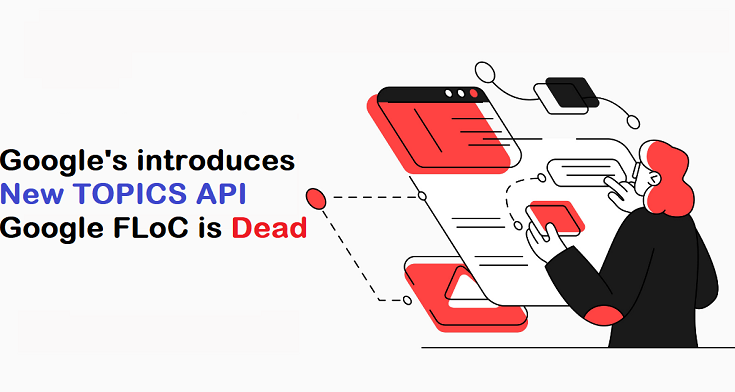Everybody is interested in Google’s intentions for a third-party cookie replacement because it is one of the main operators in digital advertising globally. The result will have a significant impact on how a multibillion dollar sector with a hazy future is reshaped.
In this post, we look at the Topics API’s definition, operation, and motivation. We’ll also examine FLoC in more detail, investigating the criticism it faced and the factors that led to its demise.
Information about Google’s Topic API?
Topics is Google’s suggested substitute for third-party cookies that respects user privacy. A user is given a set of interests based on the websites they have visited using this browser-based system.
After assigning these interests, the Topics API distributes them to partner websites and ad tech firms to support customizable digital advertising.
You should obtain entire details if you are unable to comprehend this Google upgrade. To grasp this situation and all planned adjustments in the future, you need first enroll in an SEO course Noida.
Google Topics API: How Does It Work?
Your browser will automatically give you a number of categories (or “topics”) depending on the websites you’ve visited each week if it supports Topics.
These categories include things like books and literature or travel and transportation. They won’t include any delicate information like gender or colour, and will be chosen from a starting pool of 350 that Google has carefully curated. As the product develops, this pool of candidates may grow.
After three of these weekly batches have been produced, Topics will choose one category at random from each batch and share it with a participating website that you visit.
According to Google, Topics will never store more than three weeks’ worth of data. As a result, when week four starts, all of the categories from week one are erased, and so on through week five.
The goal is to develop interest-based advertising, which Google refers to as targeting that entirely protects user privacy.
Why did Google stop supporting FLoC?
After its debut, FLoC received harsh criticism from several of the largest names in the sector.
The major worry was that FLoC allowed for fingerprinting, a method in which a third party stealthily collects trivial pieces of information about a user’s equipment in order to create a specific profile for that person, which may subsequently be used to follow them online.
These data could include things like location, language choices, and device and app preferences. Even though these seemingly little pieces of data may not appear very useful on their own, when combined, they may provide profiles that are quite accurate.
Fingerprinting data is not saved on the user’s device, therefore it cannot be simply removed, in contrast to third-party cookies.
The criticism of FLoC was that, although trackers would typically have to start profiling a person from a pool of millions by grouping them into a cohort based on their browsing behaviour, FLoC would reduce that number to only a few thousand, essentially undertaking the bulk of the early research.
How has FLoC’s issue been handled by Google Topics?
Topics makes many attempts to alleviate the FLoC-related fingerprinting problems.
First off, Topics protects privacy by sharing just one category from each weekly batch with each website, so each page will likely have a different combination of categories.
Second, categories are refreshed weekly and only stored for a maximum of three weeks. This makes sure that just a user’s most recent history is ever recorded.
Also Looking For Seo Company in Chicago
Conclusion
In this blog, we explained complete information about Google’s Topics API, and FLoC. The Topics API, Google’s most recent alternative to the third-party cookie, intends to provide an interest-based, privacy-conscious advertising approach.




